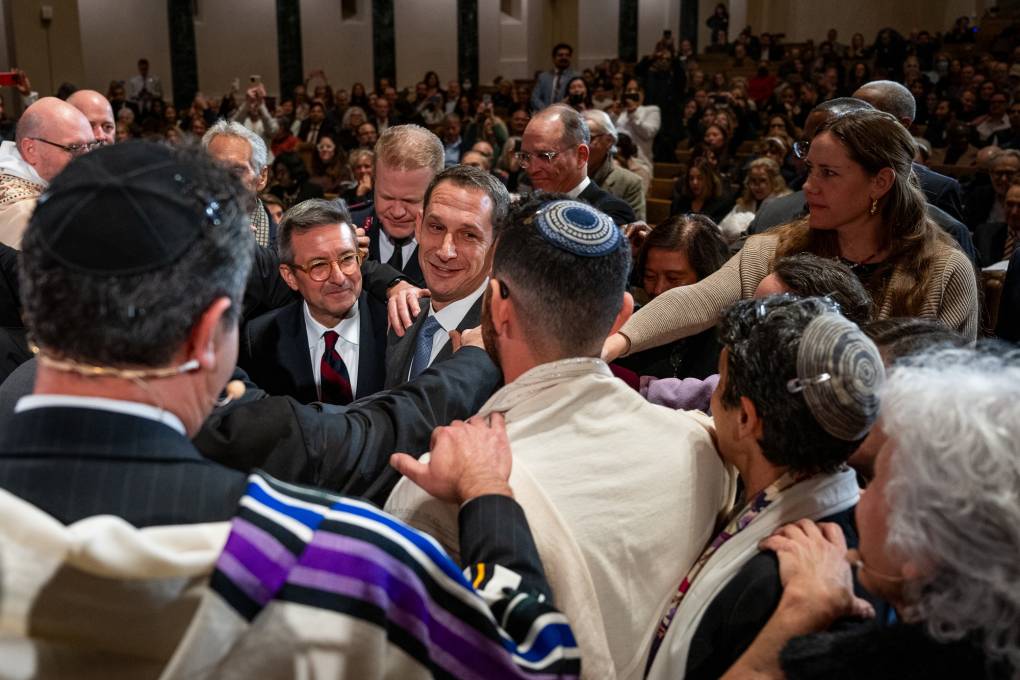Education
Wesleyan University Ends Legacy Admissions

Why It Matters: Opposition to legacy admissions has grown.
After the Supreme Court decision, legacy admissions came under heavy attack because the practice tends to favor white, wealthy applicants over Black, Hispanic, Asian American and Native American students.
President Joe Biden; Representative Alexandria Ocasio-Cortez, Democrat of New York; and Senator Tim Scott, Republican of South Carolina, have all spoken out against the practice.
Polls also show that the public does not support legacy admissions. A Pew Research Center survey last year found that 75 percent of those surveyed believed legacy status should not be a factor in college admissions.
Some highly selective universities and colleges have dropped legacy admissions, including Amherst, Johns Hopkins, Carnegie Mellon and M.I.T.
But most have been reluctant to give up the practice, arguing that it helps build a strong intergenerational community and encourages donations, which can be used for financial aid.
Background: Legacy status was becoming ‘a sign of unfairness to the outside world.’
The decision by Wesleyan, which has about 3,200 undergraduates, could be easier than for other colleges, like Harvard or Yale, which have a higher share of legacy admits.
Legacy status played a “negligible role” in admissions, Michael S. Roth, Wesleyan’s president, said in an interview. But, he added, the practice was becoming a distraction and “a sign of unfairness to the outside world.”
Mr. Roth said he did not know precisely how many past Wesleyan students were helped by legacy status. An applicant’s family ties could, for example, be used as a tiebreaker or to help whittle down a pool. They won’t any longer.
He said he wanted to focus the conversation on improving diversity, including recruiting more veterans and students from rural areas, and to avoid discussion of “the embarrassing fact, actually, that you got a leg up because of your parent or grandparent.”
Mr. Roth said he believed most alumni, though not all, would agree that legacy admissions are no longer appropriate.
“I’m wagering, I guess,” he said, with a hint of uncertainty, “that Wesleyan alumni will be proud of that, and they want it to be a place that doesn’t give unearned privileges to applicants.”
What’s Next: Groups are challenging legacy admissions at other colleges.
The future of legacy admissions on campuses is uncertain.
After the Supreme Court decision, President Biden said he would ask the Education Department to examine “practices like legacy admissions and other systems that expand privilege instead of opportunity.” And Lawyers for Civil Rights, a legal activist group, has filed a complaint with the department, requesting a review of legacy admissions, as well as admissions preferences for relatives of donors, at Harvard.
Iván Espinoza-Madrigal, the group’s executive director, said in an interview that he expected more colleges in the months ahead to make similar decisions, before the next admissions cycle.
“Institutions will reconsider their practices just as a matter of basic fairness,” he said.

Education
Four Fraternity Members Charged After a Pledge Is Set on Fire

Four fraternity members at San Diego State University are facing felony charges after a pledge was set on fire during a skit at a party last year, leaving him hospitalized for weeks with third-degree burns, prosecutors said Monday.
The fire happened on Feb. 17, 2024, when the Phi Kappa Psi fraternity held a large party at its house, despite being on probation, court documents show. While under probation, the fraternity was required to “demonstrate exemplary compliance with university policies,” according to the college’s guidelines.
Instead, prosecutors said, the fraternity members planned a skit during which a pledge would be set on fire.
After drinking alcohol in the presence of the fraternity president, Caden Cooper, 22, the three younger men — Christopher Serrano, 20, and Lars Larsen, 19, both pledges, and Lucas Cowling, 20 — then performed the skit, prosecutors said.
Mr. Larsen was set on fire and wounded, prosecutors said, forcing him to spend weeks in the hospital for treatment of third-degree burns covering 16 percent of his body, mostly on his legs.
The charges against Mr. Cooper, Mr. Cowling and Mr. Serrano include recklessly causing a fire with great bodily injury; conspiracy to commit an act injurious to the public; and violating the social host ordinance. If convicted of all the charges, they would face a sentence of probation up to seven years, two months in prison.
Mr. Larsen himself was charged. The San Diego County District Attorney’s office said that he, as well as Mr. Cooper and Mr. Cowling, also tried to lie to investigators in the case, deleted evidence on social media, and told other fraternity members to destroy evidence and not speak to anyone about what happened at the party.
All four men have pleaded not guilty.
Lawyers representing Mr. Cooper and Mr. Cowling did not immediately respond to messages requesting comment on Tuesday. Contact information for lawyers for Mr. Serrano and Mr. Larsen was not immediately available.
The four students were released on Monday, but the court ordered them not to participate in any fraternity parties, not to participate in any recruitment events for the fraternity, and to obey all laws, including those related to alcohol consumption.
The university said Tuesday that it would begin its own administrative investigation into the conduct of the students and the fraternity, now that the police investigation was complete.
After it confirmed the details, the dean of students office immediately put the Phi Kappa Psi chapter on interim suspension, which remains in effect, college officials confirmed on Tuesday.
Additional action was taken, but the office said it could not reveal specifics because of student privacy laws.
“The university prioritizes the health and safety of our campus community,” college officials said in a statement, “and has high expectations for how all members of the university community, including students, behave in the interest of individual and community safety and well-being.”
At least half a dozen fraternities at San Diego State University have been put on probation in the last two years, officials said.
Education
Video: Several Killed in Wisconsin School Shooting, Including Juvenile Suspect

new video loaded: Several Killed in Wisconsin School Shooting, Including Juvenile Suspect
transcript
transcript
Several Killed in Wisconsin School Shooting, Including Juvenile Suspect
The police responded to a shooting at a private Christian school in Madison, Wis., on Monday.
-
Around 10:57 a.m., our officers were responding to a call of an active shooter at the Abundant Life Christian School here in Madison. When officers arrived, they found multiple victims suffering from gunshot wounds. Officers located a juvenile who they believe was responsible for this deceased in the building. I’m feeling a little dismayed now, so close to Christmas. Every child, every person in that building is a victim and will be a victim forever. These types of trauma don’t just go away.
Recent episodes in Guns & Gun Violence
Education
Video: Biden Apologizes for U.S. Mistreatment of Native American Children

new video loaded: Biden Apologizes for U.S. Mistreatment of Native American Children
transcript
transcript
Biden Apologizes for U.S. Mistreatment of Native American Children
President Biden offered a formal apology on Friday on behalf of the U.S. government for the abuse of Native American children from the early 1800s to the late 1960s.
-
The Federal government has never, never formally apologized for what happened until today. I formally apologize. It’s long, long, long overdue. Quite frankly, there’s no excuse that this apology took 50 years to make. I know no apology can or will make up for what was lost during the darkness of the federal boarding school policy. But today, we’re finally moving forward into the light.
Recent episodes in Politics
-

 Business1 week ago
Business1 week agoThese are the top 7 issues facing the struggling restaurant industry in 2025
-

 Culture1 week ago
Culture1 week agoThe 25 worst losses in college football history, including Baylor’s 2024 entry at Colorado
-

 Sports1 week ago
Sports1 week agoThe top out-of-contract players available as free transfers: Kimmich, De Bruyne, Van Dijk…
-

 Politics6 days ago
Politics6 days agoNew Orleans attacker had 'remote detonator' for explosives in French Quarter, Biden says
-

 Politics5 days ago
Politics5 days agoCarter's judicial picks reshaped the federal bench across the country
-

 Politics4 days ago
Politics4 days agoWho Are the Recipients of the Presidential Medal of Freedom?
-

 Health3 days ago
Health3 days agoOzempic ‘microdosing’ is the new weight-loss trend: Should you try it?
-

 World1 week ago
World1 week agoIvory Coast says French troops to leave country after decades














